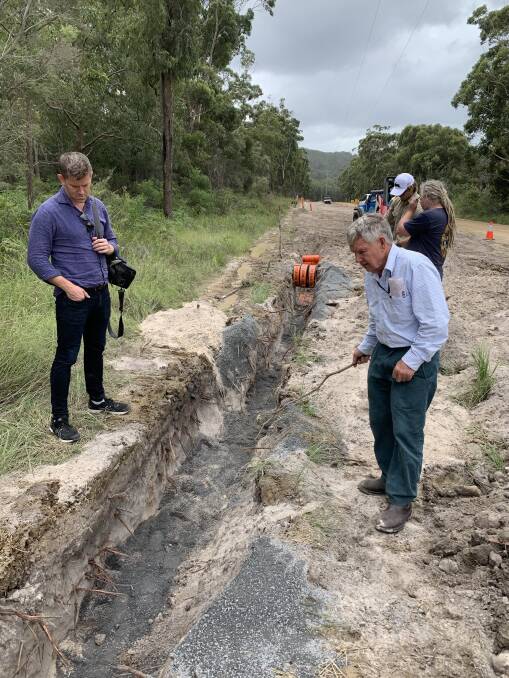
There is an exciting pilot program set to take place in the Macleay for Aboriginal students who are interested in the archaeological history of the area and working on country.
Subscribe now for unlimited access.
or signup to continue reading
Macleay Vocational College is running the Wutu durriti ngalayn project, targeting 15 senior students from local schools in the area to take part in an Aboriginal Sites Work course.
Students will learn how the latest technology is utilised, such as drones to identify isolated sites and ground penetrating radar to assist detect potential sites.
The college worked closely with Dunghutti elders while planning the program. Fred Kelly from the Kempsey Local Aboriginal Land Council will be the main trainee and assessor.
General manager of the Macleay Valley Workplace Learning Centre Sue Seager said it was something they have been keen to deliver for quite a while.
"I think this program is a fantastic opportunity for the youth in the Macleay Valley to get hands on experience and training towards a career on country at Aboriginal sites, or maybe our first Dunghutti archaeologist down the track," Mrs Seager said.
"There is plenty of opportunities for people who are interested in working on country in those roles, they just need to commit to the training."
The program will also tie in with archaeological research the University of Queensland is conducting at Goolowah and Racecourse Beach in Crescent Head.
Archeologist at the University of Queensland Dr Michael Westaway said they were happy to help out.
"I think it's great, I'm from that area and honestly if I was a kid and I had been offered an opportunity like that I would of been pretty excited," Dr Westaway said.
"It's really nice for something like this to support the Dunghutti people, because I think there is a valuable cultural landscape around the Macleay Valley, and there needs to be more research in the area."
Dr Westaway said they have recently filed an Aboriginal Heritage Impact Permit and will need approval from Heritage NSW, but are confident they will get approval.
"We are very interested to try and find early evidence of the ancestors of the Dunghutti who were living in that landscape," Dr Westaway said.
The University ultimately wants to undertake excavations of sites, perform carbon dating and work out how the landscape has changed over time.
Also making the news
Our journalists work hard to provide local, up-to-date news to the community. This is how you can continue to access our trusted content:
- Bookmark our website
- Make sure you are signed up for our breaking and regular headlines newsletters
- Follow us on Twitter: @macleayargus
- Follow us on Instagram: @macleayargus


